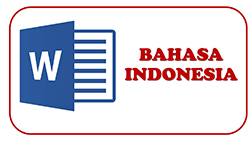Optimization of The Management of Islamic Spiritual Organizations (ROHIS) as A Strategy to Improve Islamic Religious Education Learning in High Schools
Abstract
This study analyzes the optimization of the management of the Islamic Spirituality Organization (Rohis) as a strategy to enhance the learning of Islamic Education at SMA Islam Al-Ulum Terpadu Medan. The main issues in PAI learning are the limited time and the overly theoretical approach. Using a mixed-methods approach, data were collected through interviews, observations, and questionnaires from 41 active Rohis students. The findings show that structured management of Rohis increased student participation by 80.5% and significantly strengthened their understanding of PAI material. Full support from the school was a key success factor, while students' time constraints posed the main challenge. This study offers innovative strategies such as religious competitions, regular religious discussions, and the use of social media to improve the effectiveness of Rohis activities. The novelty of this research lies in the development of specific optimization steps for Rohis that can be applied in other schools, including cross-organization collaboration, the provision of dedicated spaces, and the integration of Islamic values practically in student activities.
Downloads
References
Arifudin, O. (2022). Optimalisasi Kegiatan Ekstrakurikuler dalam Membina Karakter Peserta Didik. JIIP - Jurnal Ilmiah Ilmu Pendidikan, 5(3), 829–837. https://doi.org/10.54371/jiip.v5i3.492
Arizka, P. S., & Arlina, A. (2023). Implementasi Program Public Speaking Skill Pada Kegiatan Ekstrakulikuler Pendidikan Agama Islam. Munaddhomah: Jurnal Manajemen Pendidikan Islam, 4(4), 815–824. https://doi.org/10.31538/munaddhomah.v4i4.685
Creswell, J. W. (2010). Research Design: Pendekatan Kualitatif, Kuantitatif dan Mixed (Edisi III). 5.
Fauzi, M. R. (2019). Pendidikan Holistik Anak Sd Ditinjau Dari Teori Rekonstruksi Sosial John Dewey. As-Salam: Jurnal Studi Hukum Islam & Pendidikan, 8(2), 151–168. https://doi.org/10.51226/assalam.v8i2.159
Febriyanti, F., & Imami, A. I. (2021). Analisis Self-Regulated Learning dalam Pembelajaran Matematika Pada Siswa SMP. Jurnal Ilmiah Soulmath : Jurnal Edukasi Pendidikan Matematika, 9(1), 1–10. https://doi.org/10.25139/smj.v9i1.3300
Fitri, L., & Khaidir, A. (2023). Hubungan Sinergi Antara Sekolah, Komite, Orangtua dan Masyarakat dalam Peningkatan Mutu Pendidikan. TSAQOFAH, 3, 80–90. https://doi.org/10.58578/tsaqofah.v3i1.774
Harefa, N., Sinaga, M., & Silaban, S. (2020). Students perception and interest on chemistry: Learning evaluation integrated quizziz media. 12, 143–150. https://doi.org/10.24114/jpkim.v12i3.21163
Huda, N., Widodo, B. S., Karwanto, Aseri, M., & Wahyudin. (2024). Strategies for Strengthening Character Education in Islamic Boarding Schools Through Extracurricular Activities. Munaddhomah, 5(3), 354–366. https://doi.org/10.31538/munaddhomah.v5i3.1397
Hussin, M. Y. M., Muhammad, F., Razak, A. A., & Awang, S. A. (2024). Islamic Religious School as an Alternative Education Institution in the Global Era: A Bibliometric and Thematic Analysis. International Journal of Learning, Teaching and Educational Research, 23(9), 560–591. https://doi.org/10.26803/ijlter.23.9.28
Imamiyah, I. N., & Istikomah, I. (2023). Manajemen Pembelajaran Pendidikan Al-Islam di SMA Muhammadiyah. Munaddhomah: Jurnal Manajemen Pendidikan Islam, 4(2 SE-Articles), 330–340. https://doi.org/10.31538/munaddhomah.v4i2.430
Juleha, J., & Zuliana, Z. (2023). Analisis Penerapan Metode Ceramah Plus Pada Mata Pelajaran Pendidikan Agama Islam di SMP Tunas Mandiri Kabupaten Langkat. Jurnal Manajemen Akuntansi (JUMSI), 3(4), 2421–2434.
Jumrani, Hisban Thaha, dkk. (2021). Optimalisasi Manajemen Program Ekstrakurikuler Rohani Islam. Journal of Islamic Education Management Oktober, Vol. 6(No. 2), 140–142.
Kim, J., & Wargo, E. (2022). The Interface of Leadership Development and Extracurricular Activity: Exploring the Effects of Involvement in Extracurricular Activity on Community Leadership. https://api.semanticscholar.org/CorpusID:264186123
Kurbani, A. (2017). Pengaruh Kualitas Layanan Akademik dan Fasilitas Pendidikan terhadap Kepuasan Mahasiswa Kuliah pada Universitas PGRI Palembang. Jurnal Media Wahana Ekonomika, 13(4), 22–35.
Liza, N., & Wahyuni, S. (2023). Peranan Guru Bimbingan dan Konseling (BK) dalam Pemberian Layanan Informasi untuk Mengembangkan Perilaku Jujur Siswa. Munaddhomah: Jurnal Manajemen Pendidikan Islam, 4(2), 381–394. https://doi.org/10.31538/munaddhomah.v4i2.460
Lubman, D. I., Manning, V., Arunogiri, S., Hall, K., Reynolds, J., Stragalinos, P., Petukhova, R., Gerhard, R., Tyler, J., Bough, A., Harris, A., & Grigg, J. (2023). A structured, telephone-delivered intervention to reduce methamphetamine use: study protocol for a parallel-group randomised controlled trial. Trials, 24(1), 1–26. https://doi.org/10.1186/s13063-023-07172-9
Nasihudin, A., & Dewi, S. (2020). Pengaruh Kegiatan Ekstrakurikuler Rohani Islam (Rohis) Terhadap Prestasi Belajar Siswa Pada Mata Pelajaran Pai. Thoriqotuna: Jurnal Pendidikan Islam, 3(2 SE-Articles). https://doi.org/10.47971/tjpi.v3i2.289
Nisa, R., Hadi, S., & Pristiani, R. (2024). Global Learning Transformation in Primary Education: A Systematic Review of Digital Policy and Access Enhancement. At-Thullab: Jurnal Pendidikan Guru Madrasah Ibtidaiyah, 8(2), 194-216.
Nurdin, A., Hendra, Khozin, Haris, A., Zainab, N., & Yahaya, M. Z. (2024). Developing the Islamic Religious Education Curriculum in Inclusive Schools or Madrasah and Its Implementation: A Systematic Literature Review. Jurnal Pendidikan Agama Islam, 21(1), 94–110. https://doi.org/10.14421/jpai.v21i1.6907
Nurmalina, & Sulastri. (2019). Hubungan Antara Self Control Dengan Perilaku Berhutang Pada Mahasiswa Fakultas X Universitas Muhammadiyah Lampung. American Journal of Psychology, 2(1), 31–40. https://doi.org/10.24042/ajp.v2i1.4154
Oryngaliyeva, S., Yermentayeva, A., Turganbayeva, B., Mamanova, A., & Abdrashitova, T. (2024). Self-actualisation as a criterion for the development of future teachers’ psychological competence. Cakrawala Pendidikan, 43(3), 562–572. https://doi.org/10.21831/cp.v43i3.55676
Rahma fadli dkk. (2023). Peningkatan Konsep Keagamaan Siswa Melalui Integrasi Pai Dengan Kegiatan Rohis Di Sekolah. Adiba: Journal of Education, 3(3), 433–441.
Rahmat, M., & Yahya, M. W. B. H. M. (2022). The Impact of Inclusive Islamic Education Teaching Materials Model on Religious Tolerance of Indonesian Students. International Journal of Instruction, 15(1), 347–364. https://doi.org/10.29333/iji.2022.15120a
Ramdan, A. (2020). Pengaruh Outdoor Education Berlandaskan Experiential Learning Terhadap Kreativitas. MAENPO, 8, 45. https://doi.org/10.35194/jm.v8i2.927
Retno Agustin, I Nyoman Sudana Degeng, Z. A. (2019). Kepuasan Layanan Pengelolaan Pembelajaran Mahasiswa Konsentrasi Diklat Dan Kurikulum Pada Jurusan Teknologi Pendidikan Fip Um. Jurnal Kajian Teknologi Pendidikan, 2(1), 53–61.
Rifky, S., Putra, J. M., Ahmad, A. T., Widayanthi, D. G. C., Abdullah, G., Sunardi, S., & Syathroh, I. L. (2024). Pendidikan Yang Menginspirasi: Mengasah Potensi Individu. Yayasan Literasi Sains Indonesia.
Sahid, U., Wasliman, I., Muchtar, H. S., & Insan, H. S. (2021). Management of Student Characteristics Through Extracurricular Activities in The School Environment Based on Islamic Boarding Schools. Munaddhomah: Jurnal Manajemen Pendidikan Islam, 2(2), 116–125. https://doi.org/10.31538/munaddhomah.v2i2.97
Sormin, Y., Haifarashin, R., & Arifin, M. H. (2022). Pengaruh Kegiatan Study Tour Pada Pemahaman Siswa Sekolah Dasar Mengenai Pembelajaran IPS. Maharot: Journal of Islamic Education, 6(1), 2580–3999. http://ejournal.idia.ac.id/index.php/maharot
Sule, M. M., & Sulaiman, Y. (2021). Enhancing Islamic Da’Wah and Spread of Knowledge Via Social Media Platforms. Jurnal Ilmiah Peuradeun, 9(1), 145–160. https://doi.org/10.26811/peuradeun.v9i1.549
Tolchah, M. (2021). Dinamika Pendidikan Islam Pasca Orde Baru.
Zany, N. S. (2022). Penerapan Fungsi Manajemen Pada Ekstrakurikuler Rohis Dalam Melaksanakan Pelaksanaan Dakwah Bagi Siswa di SMA Negeri 1 Sei Suka Kabupaten Batu Bara. Universitas Islam Negeri Sumatera Utara.





.png)










